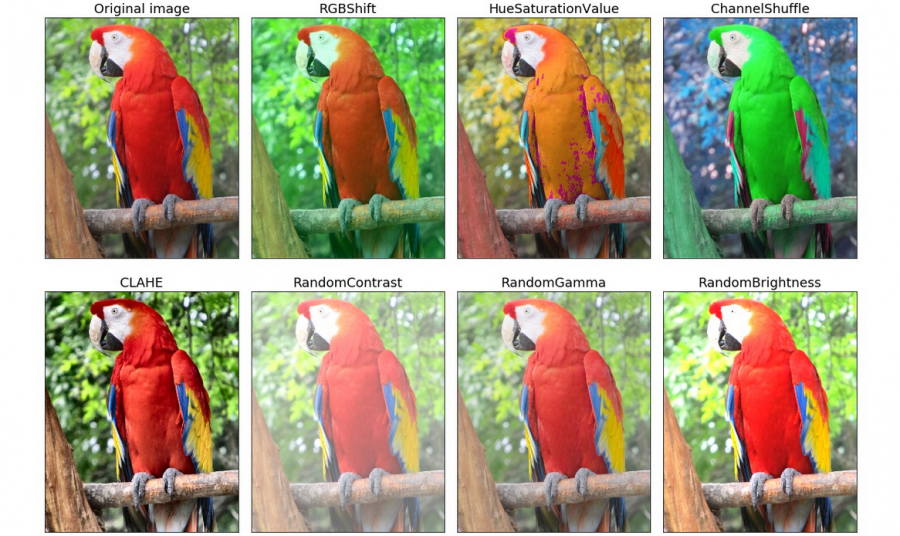
A team of researchers has created and open-sourced a new, fast and flexible image augmentation library. The library, based on numpy, OpenCV and imgaug, is developed as implementation for the proposed image augmentation techniques in their paper.
Modern machine learning models for computer vision, such as deep convolutional neural networks require large amounts of training data to be able to scale their generalization capabilities. Data agumentation, as a techniqe for increasing the amount of training data, is used very often when training these models. However, typical data augmentation involved simple variations of the image data such as rotations, flipping, scaling and cropping.
The new library, called Albumentations provides optimized methods for image data augmentation with many various image transformation operations. Some examples of these operations are: RGBShift, RandomContrast, MedianBlur, JpegCompression etc.
These image augmentations can be applied and can be very useful in problems such as classification, segmentation, detection. The library supports both Python 2.7 and Python 3. It has a flexible API allowing it to be used in different computer vision pipelines. Moreover, it supports easy integration with Pytorch and torchvision module.
Albumentations was actually used by the researchers to get top-score results in many machine learning/computer vision competitions such as Kaggle, topcoder, CVPR etc.
The library is available here and more about the augmentation techniqes can be read in the paper published on arxiv.